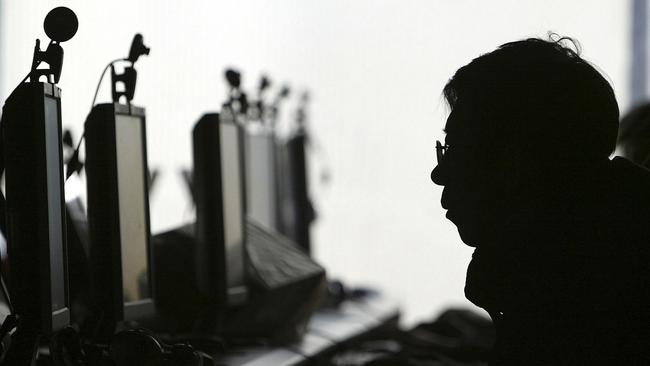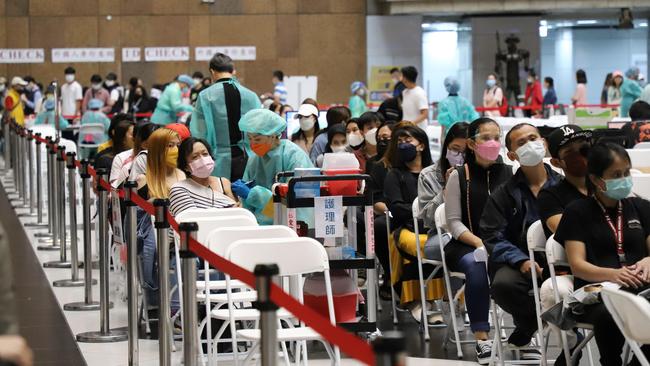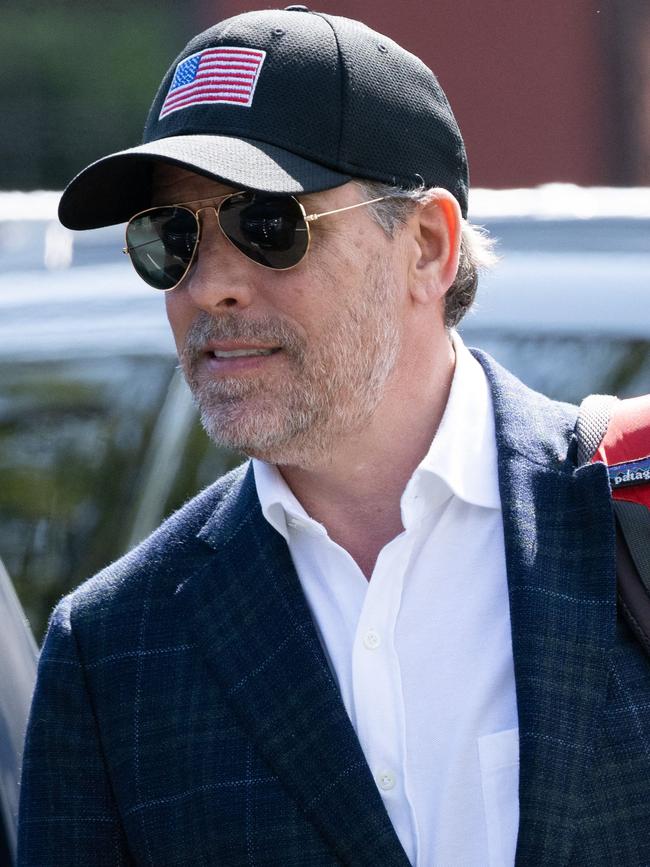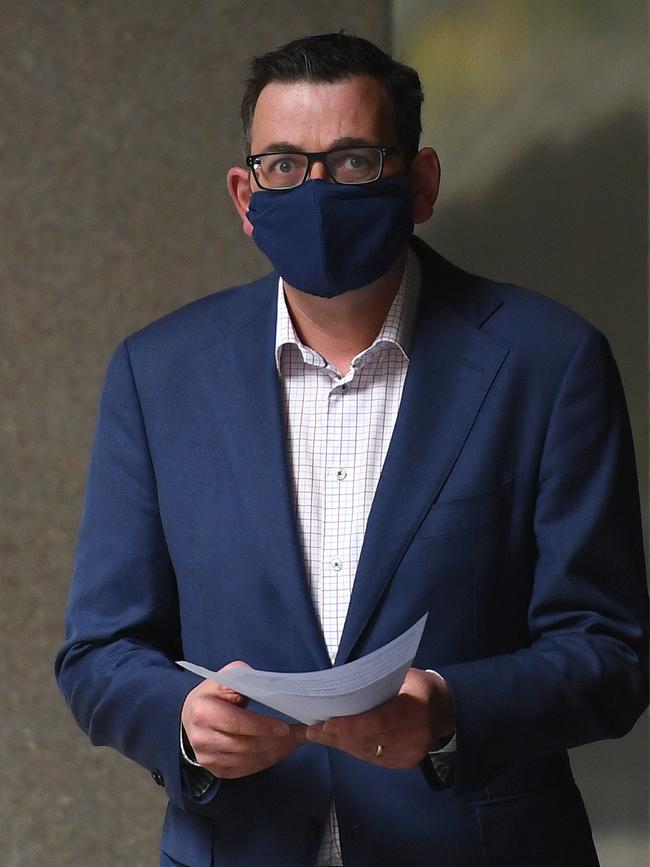Misinformation bill: Is Australia taking a different path to US on free speech?
At the very time when our population is arguably more educated than ever (at least on paper), government has decided to take a greater role in limiting what we can say, read and hear.

Modern states have vast resources to promote their views on their own websites and in paid advertisements, and that’s even before much of the commercial media amplify the government’s views and attack its critics. Could the last few years provide any better example?
So it should be regarded as beyond the pale that government be allowed to censor those with whom it disagrees. Yet this hasn’t been the experience of supposed liberal democracies, least of all in the US, which was once the gold standard for free speech rights.

A landmark court ruling in the US last week highlighted the shocking extent to which the US government has been pressuring social media platforms, mainly Twitter and Facebook, to remove viewpoints it didn’t like. A 155-page ruling by a Louisiana federal court judge laid out in depressing detail how various US government departments – especially the White House – provided significant encouragement, verging on outright coercion, to social media platforms to remove or throttle posts the government didn’t like.
Judge Terry Doughty said the allegations entailed “arguably the most massive attack against free speech in United States history”, which sounds like an exaggeration until you read the judgment. For almost two years senior White House officials and top bureaucrats were privately demanding Twitter and Facebook provide regular proof they were censoring certain individuals and posts that officials would routinely flag.
Some of the speech removed from these platforms included criticism of Covid-19 vaccine mandates, the vaccines themselves, the wisdom of lockdowns, the veracity of Hunter Biden’s laptop, US election outcomes and governance, and even parody or joke accounts mocking Joe Biden.

“(We) cannot stress the degree to which this needs to be resolved immediately. Please remove this account immediately,” White House adviser Rob Flaherty told Twitter in February 2021, referring to a parody account mocking Biden’s granddaughter. “Internally we have been considering our options on what to do about it,” another official wrote in a not-so-veiled threat from White House staff to Facebook around the same time.
“Hey folks, wanted to flag the below tweet and am wondering if we can get moving on the process of having it removed. ASAP,” was another email reflective of the general tenor of dialogue between the government and social media platforms. Of course, the right to free speech in the US has nothing to do with whether or not the speaker is “correct”, a remarkably slippery concept in any case. The US constitution, which guarantees free speech with few exceptions, doesn’t permit the government to censor speech even if it does so by applying pressure to private corporations.
It probably wasn’t a coincidence, for example, that all the posts subsequently removed reflected conservative viewpoints. But what’s doubly shocking is that the bulk of the posts censored were either correct at the time, later turned out to be, or were clearly open to intellectual debate. Masks weren’t terribly effective at stopping Covid-19. Lockdowns were horrifically costly. Covid-19 probably did emerge from a Wuhan lab. Hunter Biden’s laptop was genuine. Covid-19 vaccines weren’t effective at stopping transmission or preventing illness or death.

A renowned vaccine specialist at Harvard University, Martin Kuldorff, was censored at the government’s behest for stating “thinking everyone must be vaccinated is scientifically flawed”.
At the same time, without this rampant censorship on social media – as the mainstream press hysterically denounced anyone who stepped out of line with the bureaucracy – society might even have settled on the truth (as opposed to the government-mandated truth) more quickly.
As Benjamin Franklin wrote, “reason and free inquiry are the only effectual agents against error”.
Whether the US court ruling survives remains to be seen: the Biden administration has appealed amid widespread indignation – based on its censorship-industrial complex – that a court has dared stop the government from “keeping people safe”.
The outlook for free speech is even less certain in Australia, where the government is set on passing the Combating Misinformation and Disinformation Bill, which can only be described as a shameful, Orwellian piece of legislation that would empower the government to censor just about anyone for anything.
It’s a step on the path towards the style of governance we see in China, where the Chinese Communist Party works hand-in-hand with social media platforms to silence views it doesn’t like and control “the narrative”.
Under pain of financial penalty, the bill would compel social media companies to remove any speech that caused “harm” to Australians’ “health”, to “the environment”, or any “economic or financial harm”. Of course, this also includes the usual prohibition of undefined “hate speech”. These definitions are ridiculously broad, giving the green light to censorship of posts critical of the government’s 2050 “net-zero” carbon emissions goals, for instance, or criticism of compulsory superannuation (which, ironically, is a cause of economic harm).
The collective shrug when it emerged in May that the Australian government had been urging Twitter and other social media platforms to take down posts it didn’t like during the pandemic – including those poking fun at Dan Andrews – foreshadows a worrying deterioration of our freedom.

At the very time when our population is arguable more educated than ever (at least on paper), governments have decided to take a greater role in limiting what we can say, read and hear.
The response to the pandemic, far from justifying such a shift, should highlight the absurdity of allowing governments the right to be arbiters of truth.
It’s naive to think the motivation for government censorship is genuine concern for people’s welfare. It’s more likely an ideological power grab from individuals who don’t like freedom of speech and yearn for a more powerful role for government in policing truth – especially now the technological tools have emerged to achieve information domination.
Even if it were the motivation, and even if censorship could “save lives”, it’s not worth it.
To quote Franklin again: “Those who would give up essential Liberty, to purchase a little temporary Safety, deserve neither.” Free speech is the bedrock of all other rights. Australia and the US appear to be parting ways on the role of race in public life, as evidenced by the looming voice proposal on the one hand and the US Supreme Court’s quashing of race-based affirmative action at universities in a landmark ruling last month.
We appear to be taking different tracks on free speech, too, which is more ominous: the government’s misinformation bill would also outlaw speech that “harms the integrity of government institutions”. We should resist this while we still can.






In an age of relentless propaganda it’s more important than ever that governments not be allowed to censor differences of opinion.